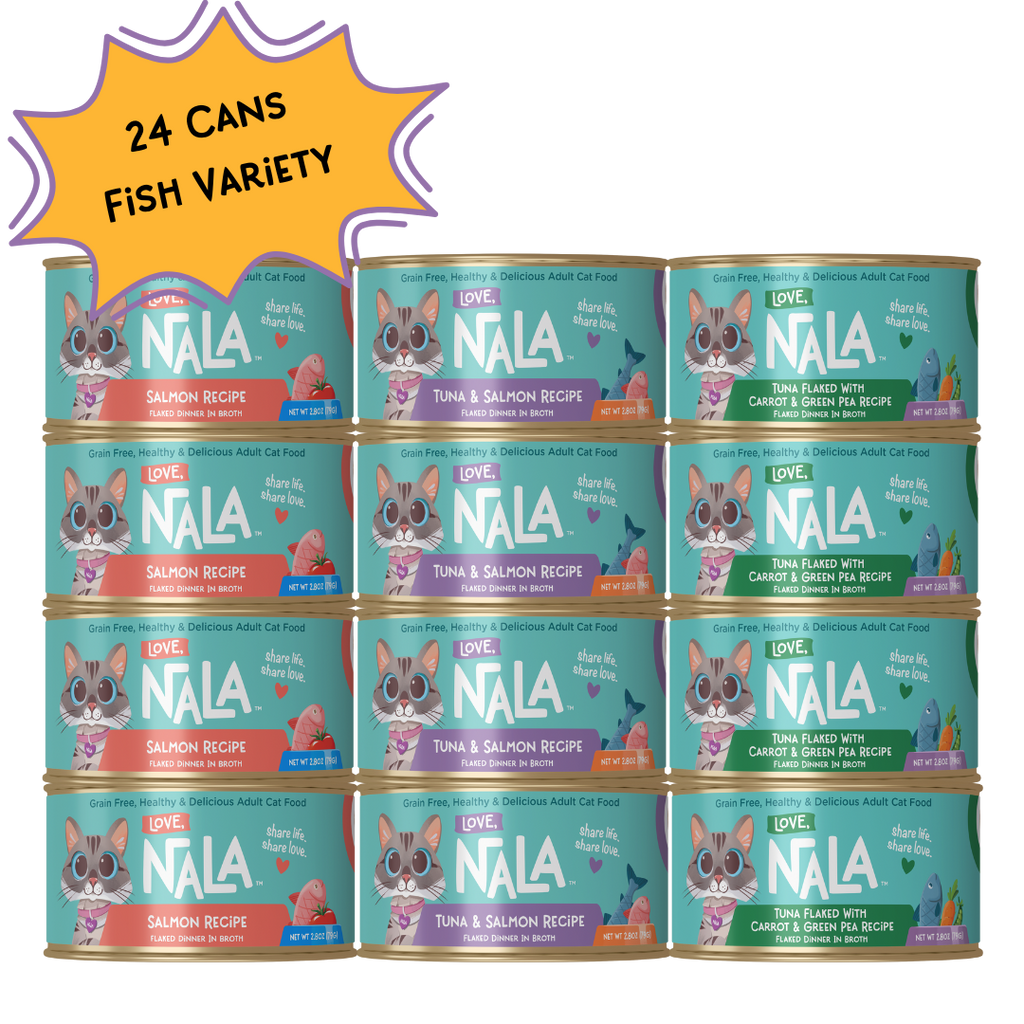Few things make me happier than a bowl full of savory food, and I know most of my fellow felines would agree. That’s why it can be distressing for both pets and their pawrents when tummy troubles arise.
If your fur baby has been struggling with bellyaches and more unpleasant symptoms, you should definitely take them to see the cat doctor. They will be able to tell you exactly what is going on.
In the meantime, here is what you need to know about what could be causing the problem and how you can safely feed your cats with stomach sensitivities.
Common Causes of Stomach Sensitivity in Cats
Understanding what’s causing your cat to chuck up their dinner or make frequent visits to the litter box is the first and most important step towards helping them feel better.
There are many reasons your cat could have tummy troubles and it may not be what you think. These are the most common causes of stomach sensitivities in cats that you should be aware of.
Food Intolerances and Allergies
There is a difference between food intolerance and an allergy! Food intolerance is your pet’s digestive system reacting negatively to a certain food while an allergy is a reaction from their immune system.
Intolerance is commonly signaled by:
- Vomiting
- Diarrhea
- Abdominal cramps and bloating
- Skin itchiness or redness
If the problem is rooted in a food allergy, your cat’s skin and behavior will reveal the tell-tale signs. Keep an eye out for:
- Fluid-filled bumps on the skin
- Persistent scratching
- Hair loss
- Coughing and sneezing
- Runny eyes or nose
- Swollen paws
Cat food that is high in fat or fiber may cause cats with stomach sensitivities to feel sick, especially if they contain these ingredients:
- Beef
- Chicken
- Pork
- Eggs
- Fish
- Dairy
- Corn
If you suspect that your cat’s food is the culprit, check their food’s label and bring up your concerns at your appointment with the cat doctor.
Switching Their Food Too Fast
Most of us cats are cool with the idea of switching up our food every once in a while. However, this is a process that is best done slowly.
Sudden changes in our diet can leave us dealing with an upset stomach, diarrhea, or vomiting. Trust me, it’s just as unpleasant for us as it is for you.
If you’re planning on changing out your cat’s food, plan to take about 7-10 days for a safe transition. Just mix a small amount of the new food with their old food to start, and then gradually add a little more each day until you’re comfortable enough to ixnay the old food altogether.
Stress
Just like our humans, stress is an emotional state that can have drastic effects on our physical health if left unchecked.
Highly stressful situations or chronic stress can result in an upset stomach or, in extreme cases, inflammatory bowel disease. Here are some scenarios that are likely to distress your companion and cause stomach sensitivities:
- Adding a new furry member to your family
- Moving to a new home
- Rearranging or removing furniture
- Diet change
- Boredom
If you believe that anxiety is to blame for your cat’s stomach problems, try these tips to reduce stress at home.
How to Feed Cats With Stomach Sensitivities
If you and the cat doctor have concluded that your pet’s food is responsible for their bellyaches or allergic reactions, you’ll be able to plan an elimination diet to determine exactly which ingredients they’re sensitive to.
Once you’ve pinpointed what’s triggering their sensitivities, the doctor will help you choose the right hypoallergenic diet formulated just for your cat’s unique needs.
As a feline that loves food, the word “diet” can be a real turn-off. However, I’ve learned from my pawrents that dieting and eating better doesn’t mean we have to give up the flavors we love.
In fact, we live in a day and age in which hypoallergenic diets have never been more delicious!
My super premium cat food may be the solution to all of your cat's stomach issues if you're looking for tasty meals that are free from artificial flavors, grains, by-product meals, and other potentially triggering elements.
For cats with stomach sensitivities, we highly recommend trying:
- Chicken with Pumpkin Wet Cat Food: A tasty combination with pumpkin, a natural stomach soother, as one of the main ingredients.
- Tuna Flaked With Carrot and Green Pea: Contains essential nutrients and ingredients that are lower in protein, making it ideal for cats that have trouble breaking down protein molecules.
Join the Love, Nala Family and Step Up Your Cat’s Nutrition
My pawrents and I believe that pets are a part of the family, and we’d love for you and your cats to become a part of ours.
Check out the Love, Nala Cat-a-logue to find healthy and delicious meals and treats for the special pets in your life, and be sure to subscribe to your cat’s favorites for special savings exclusive to our members.
We’re so happy you’re here and thanks for being a part of our purrfect community.
Love,
Nala




















